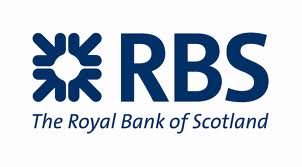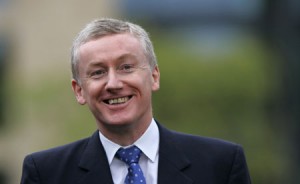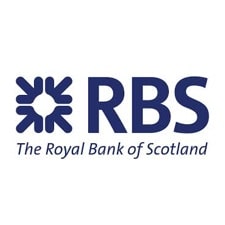
One of the UK's largest commercial banks and mortgage lenders, The Royal Bank of Scotland (RBS), has been fined £14.5 million by the Financial Conduct Authority (FCA) for what the regulator describes as “serious failings in its advice to mortgage customers."
According to the FCA, only “2 out of 164 mortgage sales reviewed between 2011 and 2013 met the required standards” expected by the regulator. The FCA also reported that RBS and its retail business, NatWest, “failed to consider the full extent of a customer’s budget when making a recommendation” and failing to provide suitable mortgage terms for customers.
RBS and NatWest have admitted that as many as 30,000 customers have been potentially affected since 2011.
The FCA’s predecessor, the Financial Services Authority (FSA), raised concerns in November 2011 relating to telephone and face-to-face sales tactics used by RBS and NatWest sales staff.
In July 2012 the firm’s Chief Executive, Stephen Hester, assured the FSA that the necessary changes were under way even though nothing was being done. Over a year since initial concerns were raised both RBS and NatWest have still not augmented their business practices in line with FSA recommendations.
Looking Back
Mr. Hester’s tenure as CEO began in 2008 and ended in 2013, to be replaced by New Zealander Ross McEwan, formerly the Head of NatWest. For his diligent service Mr. Hester received 12 months pay and benefits worth £1.6 million, as well as the potential for £4 million in RBS shares.

Fred Goodwin, Former RBS CEO
Prior to Mr. Hester, the bank was led by the indomitable Frederick Goodwin, dubbed by some as ‘Fred the Shred’ for his ability to shred whole departments and terminate hundreds of employees in a single day, thus ‘streamlining’ operations and achieving a higher rate of return for shareholders.
Under Mr. Goodwin's leadership the RBS was brought to near collapse, after an aggressive global expansion, which included the ill-fated purchase of Dutch lender ABN Amro and heavy involvement in the US subprime market which suffered heavy losses as a result of the 2008 financial crisis and ensuing instability of the global banking system.
RBS was in such dire straits that it needed a Government bailout in the region of £38 billion ($60 million) to remain operational and avoid bankruptcy. The UK Treasury maintains an 80% stake in the bank to this day.

Ross McEwan, Current CEO, RBS
Not the First of Many
The latest FCA fine regarding mortgages is not the first for RBS. Over the past 7 years the bank has become embroiled in a litany of malpractice cases in both the UK and the US. In many cases RBS was found to be colluding with other banks to obtain a competitive advantage and increase profit margins.
On January 20, 2011, RBS was fined £29 million for anti-competitive practices conducted in tandem with Barclays Bank in relation to the pricing of loan products for large professional services firms.
Two years later, the bank was hit with a £390 million penalty for taking part in fixing and manipulating LIBOR rates in tandem with other US and UK-based entities. During the investigation, the FCA and SEC found "widespread” collusion involving several employees with offenses “occurring over a number of years." between 2006 and 2010.
In July 2013, RBS was fined £5.6m by the Financial Services Authority for Money Laundering violations. This June, the bank's Wealth Management business (Coutts) agreed with the FCA that it would conduct a review regarding the suitability of investment advice given to its clients.
Forthcoming Cases
In addition to the fines and regulatory actions RBS has already faced, there is further regulatory trouble ahead. The bank has allocated £3.2 billion in compensation for mis-sold insurance and a settlement with the FCA’s enforcement division over an IT systems failure in 2012 which is due by the end of the year.
Foreign Exchange (FX) market manipulation is another cause of regulatory concern for the troubled bank. Confirmation of FX market manipulation and multi-bank collusion has surfaced over the past year which could leave RBS with yet another FCA case and fine.
In July 2014, Mr.McEwan and Sir Philip Hampton, RBS Chairman, identified ongoing litigation risks as "among the most significant threats to RBS’s continuing recovery."
Fool Me Once Shame on You, Fool Me Twice Shame on Me
The calamity of failings and repeated interaction with the FSA/FCA suggests RBS continues to operate with serious failings still in place across most business divisions globally – despite regulatory warnings, fines and media scrutiny. The self-regulatory model is generally very business friendly and allows great flexibility for management level executives to use it to their advantage.
If a new market is available for exploration and profit extraction, the self-regulatory model allows for a rapid market entry, maximal entrepreneurial leeway and no scrutiny. If existing business processes are displaying ‘serious failings,’ the self-regulatory model allows for months, if not years of dialogue, multiple opportunities to rectify the failings, regurgitation of guidelines, advice, no threat of criminal proceedings and a helpful 30% discount if the perpetrator decides to settle early.
It seems regulators such as the FCA are being used by influential market participants to facilitate their 'questionable' practices rather than being ‘regulated’ in their activities. The daunting question is how many other activities has RBS (and other banks) been involved in that fall short of regulatory recommendations and have not been noticed by the FCA? Probably many.
















